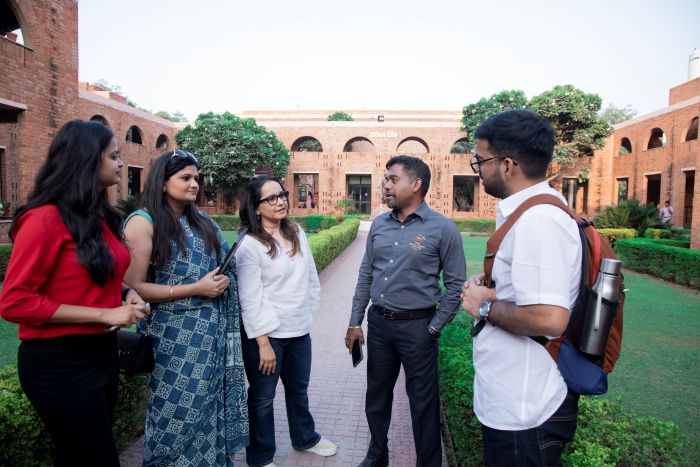
By KVS Seshasai, CEO, Pre-K Division, Lighthouse Learning
Summer breaks can provide a valuable opportunity for parents and kids to unwind and bond together, explore new hobbies collectively and create lasting memories as a family. However, with the increasing prevalence of technology, it can be challenging for parents, irrespective of which part of the world they’re in, to keep their children engaged in productive activities while limiting their screen time. Striking a balance between screen time and offline activities, especially for a working parent can be challenging.
In this article, we delve into some time-tested strategies and practical advice that can help each parent to make this summer a memorable experience. With a little effort, you can make big memories out of little things that will last a life time.
Take these small steps to help your children balance having fun with technology as well as engage in offline activities that can foster creativity, physical and mental well-being. Here’s how:
How much screen time is too much?
Screen time can have both positive and negative effects on kids. While watching videos on the phone or playing games on a tablet can be sources of entertainment and education, excess of it can also have detrimental effects on kids’ physical and mental health. The American Academy of Pediatrics as well as other global studies suggest that screen time should be limited for children to prevent adverse effects on their development. For children aged 2-5 years, it is recommended to not exceed more than an hour of screen time in a day. For children aged 6 and above, setting consistent limits on the amount of screen time they get is advisory.
While every child is different, one measure for parents to consider while setting screen time limits is to take in mind the kid’s age, temperament, and individual needs. Make sure to keep the screens away from the kids particularly during bedtime as it can interfere with their sleep.
Get outdoors with your kids, here’s why it’s important
Spending time outdoors is an unmissable aspect to ensure your child’s physical, cognitive, and emotional development. Outdoor play provides opportunities for kids to engage in physical activities, such as running, jumping, and climbing, which help develop their gross motor skills and improve their physical fitness. Moreover, being outdoors stimulates children’s imagination and creativity as they explore and interact with the natural environment, which helps in their cognitive development. Outdoor play also encourages socialisation and communication skills, as children learn to cooperate and communicate with each other while engaging in group activities.
This summer, make some time to visit the local park or play ground or plan a short hike along with your kids. This will not only promote their physical and mental well-being but also help in developing skills and experiences that will benefit them throughout their lives.
Encourage using technology for learning
Not all screen time is detrimental, given the vast amount of learning and discovery today’s technology can enable at the touch of our fingertips. Educational content has the potential to play a positive role in children’s development. As a parent, you can encourage educational screen time among your children by providing them with access to quality educational apps, websites, and games. Curate a list of such platforms that offer interactive and enriching experiences. However, it is crucial to establish time limits on the viewing time and ensure that children are engaging in other productive activities as well. Make sure you regularly monitor and evaluate the content your child engages with to ensure it aligns with their learning and growth.
Organize engaging offline alternatives
To reduce reliance on screens, look to offer a wide range of stimulating offline activities. Encourage your kids to explore their interests and hobbies, such as arts and crafts, music, sports, or cooking. If your child is not motivated enough to pursue these activities on their own, then look for extracurricular activity classes in your neighborhood and enroll your child into one or two of them, depending on your child’s preference.
Organize playdates and provide access to age-appropriate books and puzzles. By engaging kids in as diverse activities as possible, you foster their creativity, socialising skills and critical thinking.
Lead by example
Children often model their behaviour after their parents. As adults and leaders in our households, it is essential for us to practice what we preach. Set a positive example by demonstrating healthy screen time habits. Limit your own screen usage, especially in the presence of your children, and prioritise quality time together. Engage in screen-free activities along with children such as board games, storytelling or outdoor adventures to foster deeper connections and create cherished memories.
Conclusion
As parents, it is our responsibility to guide our children towards meaningful experiences during summer breaks while managing their screen time effectively. By implementing strategies such as finding engaging offline experiences, encouraging educational screen time and leading by example, we can strike a balance between technology and offline activities. Through this, we can allow our children to thrive physically, mentally, and socially. This summer, embrace this opportunity to create unforgettable summer experiences that contribute positively to our children’s growth and development. Together, we can make a lasting impact on our children’s lives and help turn them into healthy, well-rounded individuals.








